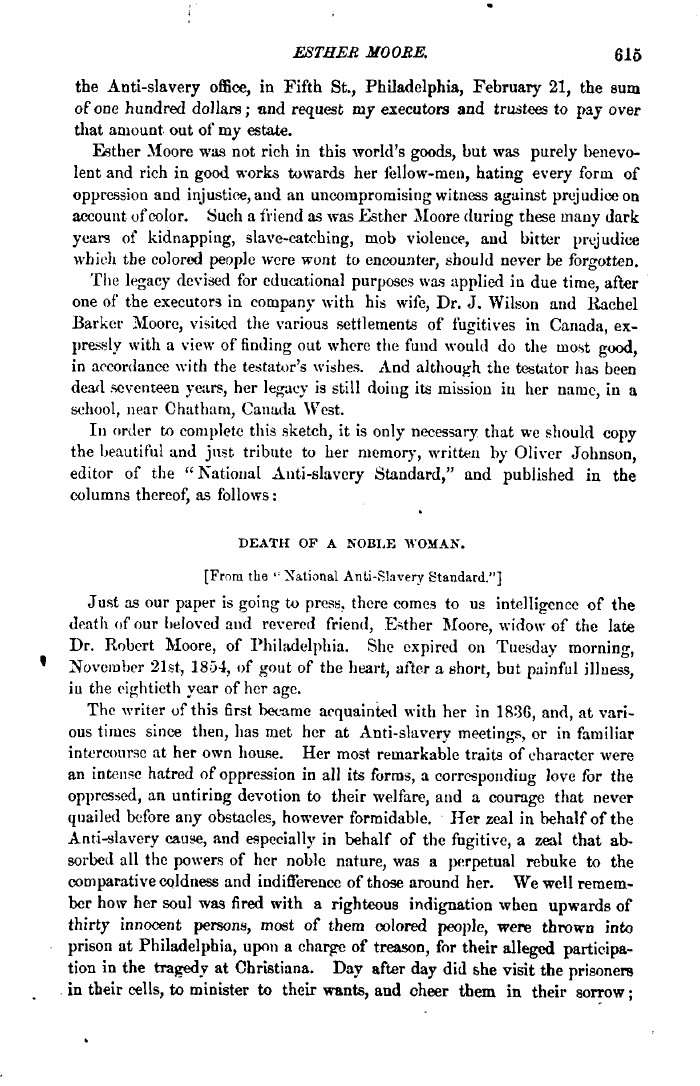 |
||||
 |
||||
| ESTHER MOORE. 615 the Anti-slavery office, in Fifth St., Philadelphia, February 21, the sum of one hundred dollara; and request my executors and trustees to paj over that amount out of my estate. Esther Moore was not rich in this world's goods, but was purely benevolent and rich in good works towards her fellow-men, hating every form of oppression and injustice, and an uncompromising witness against prejudice on account of color. Such a friend as was Esther Moore during these many dark years of kidnapping, slave-catching, mob violence, and bitter prejudice which the colored people were wont to encounter, should never be forgotten. The legacy devised for educational purposes was applied in due time, after one of the executors in company with his wife, Dr. J. Wilson and Rachel Barker Moore, visited the various settlements of fugitives in Canada, expressly with a view of finding out where the fund would do the most good, in accordance with the testator's wishes. And although the testator has been dead seventeen yours, her legacy is still doing its mission iu her name, in a school, near Chatham, Canada West. In order to complete this sketch, it is only necessary that we should copy the beautiful and just tribute to her memory, written by Oliver Johnson, editor of the " National Anti-slavery Standard," and published in the columns thereof, as follows: DEATH OF A NOBLE WOMAN. [From the '' National Anti-Slavery Standard."] Just as our paper is going to press, there comes to us intelligence of the death of our beloved and revered friend, Esther Moore, widow of the late Dr. Robert Moore, of Philadelphia. She expired on Tuesday morning, November 21st, 1854, of gout of the heart, after a short, but painful illness, iu the eightieth year of her age. The writer of this first became acquainted with her in 1836, and, at various times since then, lias met her at Anti-slavery meetings, or in familiar intercourse at her own house. Her most remarkable traits of character were an intense hatred of oppression in all its forms, a corresponding love for the oppressed, an untiring devotion to their welfare, and a courage that never quailed before any obstacles, however formidable. Her zeal in behalf of the Anti-slavery cause, and especially in behalf of the fugitive, a zeal that absorbed all the powers of her noble nature, was a perpetual rebuke to the comparative coldness and indifference of those around her. We well remember how her soul was fired with a righteous indignation when upwards of thirty innocent persons, most of them colored people, were thrown into prison at Philadelphia, upon a charge of treason, for their alleged participation in the tragedy at Christiana. Day after day did she visit the prisoners in their cells, to minister to their wants, and cheer them in their sorrow; |